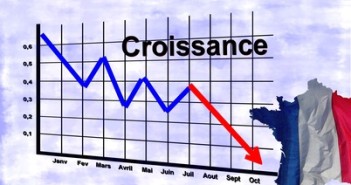The runoff between incumbent president Nicolas Sarkozy and the socialist candidate Françios Hollande will be held on May 6th. All the polls point to a healthy majority for Hollande, of around 10%. His election will have implications on the euro.
How will this impact the euro and how will Germany react? There’s a difference between the short term.
Hollande, who won the first round, is expected to receive support from most left wing voters and also from some of voters of extreme right wing candidate Marine Le Pen, that came third in the first round. Le Pen didn’t endorse either candidate and many of her voters find it hard to vote for Sarkozy.
Sarkozy suffers a personal style that made him hated in some circles, a sluggish economy and a tight relationship with Germany and fiscal austerity policy.
If Sarkozy surprises and wins (which seems unlikely at the moment), the euro will certainly benefit. We will focus on the more likely scenario of a victory for Hollande.
Both Sarkozy and Hollande laid out their programs and in fact, the differences aren’t that big: Sarkozy wants a balanced budget by 2016 and Hollande by 2017. Sarkozy leans towards budget cuts, while Hollande favors more taxes. The details of the classic left-right debate aren’t too dramatic.
Nevertheless, Hollande’s tone is a dramatic turn, and already has a strong influence on other countries and policymakers, before being elected. The Paris-Berlin agreements have held the EU together and pushed it forward. The cozy Merkozy relationship went towards austerity.
Hollande vowed to put changes in the fiscal compact, if not trash it altogether. German officials said that France might find itself isolated, but it seems that France might lead the change, and Germany might find itself isolated.
Hollande’s election, short term and long term
The immediate reaction to the probable election of Hollande would probably be negative: the markets prefer the current policy that favors stability for bondholders. Money could flow out of the euro-zone in fear that another restructuring or collapse of the whole project could be accelerated.
After the elections, it is more likely that Hollande will be more moderate, but the winds have definitely changed and Germany will have to go with the flow. Why?
Germany Needs the Euro
Germany enjoys the euro: without the common currency, it would have a much stronger Deutsch Mark and it would continue to be the “sick man of Europe”.
Some suggest that Germany might leave the euro-zone and avoid living in a “transfer union”. Up to now, Germany hasn’t actually transferred any of its wealth, but just provided loans. Even if Germany does transfer money to its southern neighbors, it has more to gain than to lose from a common currency in a zone that is growing again, even if debt isn’t cut in the way it thinks it should be cut.
Germany also needs a stable economy at home: It’s exposure to Spain is estimated at 1 trillion euros. Would it want its banks to fall with Spain? Not so fast.
The idea of promoting growth and shunning austerity is gaining traction around Europe, and could be adopted by Merkel’s rivals: the socialist SPD party. If the wind in Germany begins blowing in that direction, Merkel could certainly go with the flow and find some compromises with Hollande.
All in all, the election of Hollande will cause some pain for the euro, but in the longer scheme of things, it will probably prove a positive turning point for the common currency.
This article is part of the Forex Monthly Outlook for May. You can download it by joining the newsletter in the form below, which appears on any article on Forex Crunch.
Another opinion: Christopher Vecchio explains how Hollande could sink EUR/USD to 1.20
